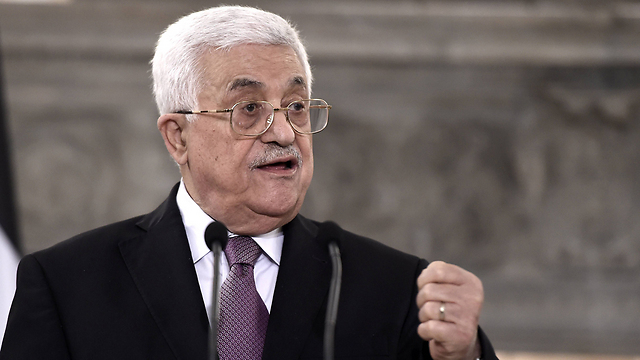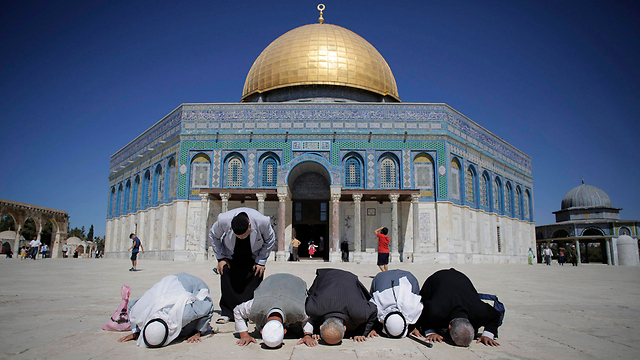Palestinian president says he’ll turn to the international community to fight against bill, which was approved by ministerial committee; the legislation ‘will not change the religious reality, rather only make the Muslims more committed to their holy places,’ says Palestinian minister of religious affairs.
Palestinian President Mahmoud Abbas warned on Sunday that a bill proposal to limit muezzin noise in Jerusalem “would drag the area to disaster.”
The Ministerial Committee for Legislation approved the legislation proposal by Bayit Yehudi MK Motti Yogev and Yisrael Beytenu MK Robert Ilatov to ban mosque muezzins from announcing prayer times via loudspeakers in the streets.
The proposal will now go to the Knesset for a preliminary reading, following which it will go back to the Knesset’s committees to continue the legislative process.

The proposal comes on the heels of demonstrations by residents of the eastern Jerusalem neighborhood of Pisgat Ze’ev who emulated a muezzin call in front of the Beit Hakerem residence of Jerusalem Mayor Nir Barkat to protest ongoing disturbances caused by Muslim calls to prayer emanating from the Shuafat, Beit Hanina and A-ram neighborhoods.
Yogev said the early-morning calls to prayer, mainly from mosques, disturb the sleep of hundreds of thousands of Jews and Arabs alike.
In his opening statements during Sunday’s ministerial meeting, Prime Minister Benjamin Netanyahu also voiced his broad agreement with the complaints of the residents in which the calls to prayer are blasted.
“The Ministerial Committee for Legislation will discuss discuss a proposed bill today to restrict the noise level of the public address system of houses of worship in Israel,” he said.” “Both Muslims, Jews and Christians suffer from this. I cannot count the number of times that civilians have approached me from all strands of Israeli society who complain about the choice and the suffering which is caused by the excessive noise from houses of worship.”
The proposal caused anger in the Palestinian Authority. In similar comments to Abbas’s, Palestinian Minister of Waqf and Religious Affairs Youssef Ideiss said that the bill threatens to drag the region into a religious war over the violation of the freedom of worship, adding it “will not change the religious reality, rather only make the Muslims more committed to their holy places.”

The Palestinian Authority is seeking the help of the UN Security Council and other international institutions to stop the passing of the bill.
Former Fatah spokesman in Jerusalem, Rafat Aliyan, said Israel’s intention to bar mosque muezzins from using loudspeakers constituted a religious war and called on all Palestinian factions to fight against the bill.
Hamas also commented on the bill proposal, with a statement from the terror group saying: “This is a dangerous development, which constitutes part of the changes made to Jerusalem monuments and mosques in an effort to erase the Islamic identity from the city. This is a forbidden interference in the freedom of worship, which inflames the feelings of all Muslims.”
Members of Israel’s Arab community were also quick to criticize the bill, with MK Issawi Freij (Meretz) calling the move “anti-Semitic” and claiming that it was not motivated by noise concerns, but rather an ongoing anti-Muslim sentiment that has become popular in the current coalition.
Dr. Thabet Abu Rass, co-chairman of The Abraham Fund Initiative, also opposed the bill but appeared to accept Yogev’s claim that the loudspeakers are disruptive and unfair. Nevertheless, he cited the mixed Arab-Jewish city of Jaffa as a precedent for dialogue being the way to address the issue, rather than unilateral legislation.
“Nobody legislated the issue in Jaffa, but somehow the local residents managed to work it out on their own, through dialogue,” Abu Rass said.
As reported by Ynetnews
